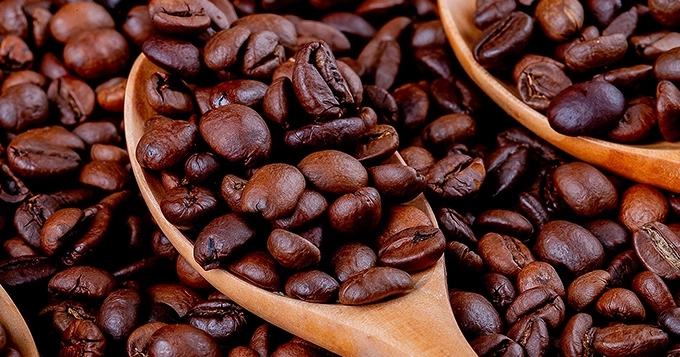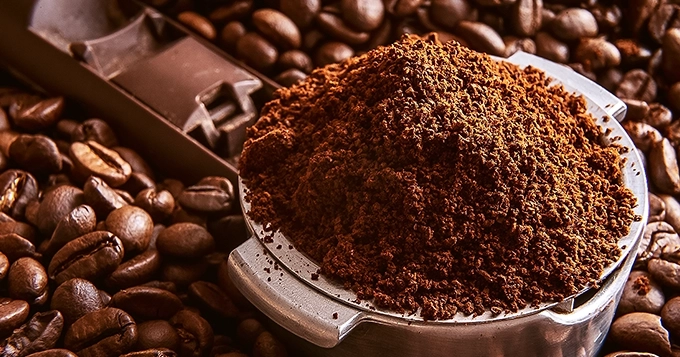From diet plans to workout routines, fitness enthusiasts are constantly seeking ways to optimize their performance. One way that has gained significant attention in recent years is using caffeine. Known for its stimulating effects, caffeine is not just your morning pick-me-up; it also offers several benefits for fitness enthusiasts. Let’s delve into how this popular stimulant can enhance your workout and overall fitness journey.
What is Caffeine?
Caffeine acts as a stimulant, increasing activity in the brain and nervous system and boosting the circulation of chemicals like cortisol and adrenaline throughout the body.
Caffeine is found in the leaves, seeds, or fruits of certain plants, including coffee, black and green tea, cocoa beans, cola nuts (used in cola soft drinks), and guarana (a common ingredient in energy drinks). Additionally, caffeine can be found in products like chocolate bars, energy bars, and certain over-the-counter medications such as cough syrup and slimming tablets. Guarana, a common ingredient in energy drinks, is also a natural source of caffeine.
In moderate amounts, caffeine can promote feelings of refreshment and focus, but in excessive doses, it can induce anxiety and disrupt sleep patterns.
Similar to other substances, tolerance to caffeine can develop over time. People with this case might need larger doses to achieve the same effects.
How Caffeine Works
Caffeine swiftly enters your bloodstream, reaching peak levels within 30–120 minutes, and its effects persist for approximately 3–4 hours before gradually subsiding.
What makes caffeine unique is its ability to affect various cells throughout your body, including those in muscles, fat, and your central nervous system.
This broad impact leads to a range of effects: boosting focus, energy, and reducing fatigue by activating different parts of the brain and nervous system; increasing hormones like adrenaline, which can enhance performance; potentially aiding in fat burning by breaking down fat in fat cells; triggering the release of endorphins for a feel-good sensation similar to the post-exercise ‘high’; and possibly improving muscle performance by stimulating the central nervous system, though the exact mechanisms are not fully understood.
Additionally, caffeine might raise body temperature, help burn more calories, and could also preserve muscle carbohydrate stores by promoting fat burning, thus improving endurance. Eventually, your liver breaks down caffeine.
Benefits of Caffeine
Caffeine and working out go hand in hand for many fitness enthusiasts, providing a boost in energy and focus during their exercise sessions. For fitness enthusiasts, its benefits extend far beyond a simple energy boost. Let’s delve into the perks of caffeine for those striving to achieve their fitness goals:
- Enhanced Performance
Caffeine is widely favored by athletes due to its known positive impact on exercise performance. However, some sports organizations like the NCAA have implemented restrictions on its high doses. Studies indicate that moderate doses of caffeine, ranging from 1.4 to 2.7 mg per pound (3–6 mg per kg) of body weight, can modestly enhance endurance. Research shows that cyclists who ingested either 100 mg or 200 mg of caffeine alongside a carbohydrate-electrolyte solution during exercise completed time trials faster compared to those who only consumed the solution, with those taking the higher dose performing even better.
Moreover, investigations into caffeine’s effects have extended to its natural source, coffee, which also contains significant caffeine levels. Studies suggest that both caffeine and caffeinated coffee provide similar benefits for endurance exercise performance. Additionally, research indicates a potential link between genetic variation in caffeine metabolism and its impact on endurance performance, as demonstrated in a study where competitive male athletes experienced greater dose-dependent improvements in endurance performance if they had the genetic variation affecting caffeine metabolism.
- Boost Fat Loss
Caffeine is frequently included in weight loss supplements due to its various effects on metabolism. It triggers the breakdown of fat stored in fat cells and boosts the body’s heat production, leading to increased fat oxidation in individuals with different body weights, including those with average weight, overweight, and obesity. Additionally, caffeine has been found to modestly raise daily calorie expenditure.
Consuming caffeine prior to exercise can notably enhance the release of stored fat, as studies have shown that doses ranging from 1.4–2.7 mg per pound (3–7 mg per kg) of body weight significantly increase fat burning during physical activity, particularly among sedentary or untrained individuals. However, despite these metabolic benefits, there is no conclusive evidence indicating that caffeine consumption alone results in significant weight loss.
- Reduced Perceived Exertion
Have you ever felt like your workout was easier after a cup of coffee? You’re not imagining things. Caffeine has been found to reduce the perception of effort during exercise, making challenging workouts feel more manageable. This can be particularly beneficial during high-intensity or endurance activities, allowing fitness enthusiasts to push themselves further and achieve better results without feeling as fatigued.
- Improved Focus and Concentration
Fitness is not all about physical strength; mental focus and concentration play a crucial role as well. Caffeine can help sharpen cognitive function, making it easier to stay focused and engaged during workouts. Whether you’re lifting weights, running, or practicing yoga, caffeine can help you maintain the mental clarity needed to perform at your best. By stimulating the central nervous system, caffeine enhances cognitive function and alertness, helping fitness enthusiasts stay dialed in during even the toughest workouts.
- Faster Recovery
Exercise-induced muscle damage is a natural part of the training process, but it can lead to soreness and fatigue if not properly addressed. Studies have shown that caffeine may help reduce muscle soreness and accelerate recovery after intense exercise. By blocking pain receptors in the body and promoting blood flow to the muscles, caffeine can help alleviate post-workout discomfort and get fitness enthusiasts back in the gym sooner. This means less downtime between workouts and more consistent training, ultimately leading to better results over time.
- Increased Motivation
Sometimes, just getting to the gym can be the biggest hurdle. Caffeine’s stimulating effects can help boost motivation and drive, making it easier to muster the energy needed to start your workout. Whether it’s an early morning gym session or an after-work exercise class, caffeine can provide the extra push you need to get moving and stay committed to your fitness routine. By increasing dopamine levels in the brain, caffeine enhances mood and motivation, helping fitness enthusiasts stay on track with their goals and maintain a positive attitude towards exercise.
Tips for Supplementing with Caffeine
Supplementing with caffeine can be a valuable addition to your fitness routine, but it’s essential to do so safely and effectively. Some tips to help you make the most of caffeine as a supplement:
- Start with a low dose to gauge sensitivity.
- Time caffeine intake about 30-60 minutes before workouts.
- Stay hydrated by drinking water alongside caffeine.
- Monitor total caffeine intake to avoid exceeding recommended limits.
- Consider cycling caffeine intake to prevent tolerance.
- Combine caffeine with other supplements for synergistic effects.
- Listen to your body and adjust intake if experiencing adverse effects.
How much Caffeine is okay each day?
Your body’s response to caffeine is influenced by factors such as body mass, health, and metabolism, as well as your regular caffeine intake and the amount consumed in a single serving. Studies indicate that a daily 400mg or less intake is considered safe for most people.
Here are approximate caffeine levels per serving for various products:
- Black tea: 65–105mg per 250ml
- Caffeine tablets such as No-Doz: 100mg per tablet.
- Chocolate drinks: 5–10mg per 250ml
- Cola drinks: 40–49mg per 375ml
- Dark chocolate: 40-50mg per 55g serving
- Decaffeinated coffee: 2–6mg per 250ml
- Energy drinks: 160mg per 250ml
- Espresso-based drinks like espresso or latte: 105–110mg per 250ml
- Guarana: Up to 100mg per 1g of guarana
- Instant coffee: 80–120mg per 250ml
- Milk chocolate bar: 10mg per 50g serving
- Percolated coffee: 150–240mg per 250ml
- Red Bull energy drink: 80mg per 250ml
Conclusion
Do whatever works for you, whether you try low caffeine pre workout, no caffeine pre workout, or high caffeine workout.
For those sensitive to stimulants, a no caffeine pre workout option provides a jitter-free alternative to fuel their exercise without the side effects. Many athletes opt for a low caffeine pre workout supplement to avoid jitters while benefiting from the energy boost before their training session.
Caffeine is more than just a morning ritual; it’s a powerful tool for enhancing performance and achieving your fitness goals. From increased energy and endurance to improved mental focus and fat burning, caffeine offers a wide range of benefits for fitness enthusiasts. By incorporating caffeine into your pre-workout routine, you can take your workout sessions to the next level and maximize your results as long as you consume it in moderation and enjoy the boost it brings to your fitness journey.










